- Home
- Fay Weldon
Darcy's Utopia Page 6
Darcy's Utopia Read online
Page 6
‘Darling.’
‘Darling. Christ I miss you. I can get there at one. Only for half an hour.’
‘Make it thirty-three minutes.’
‘Why thirty-three?’
‘Any time without a nought on the end.’
‘You are all mystery. Stef was never a mystery.’
Stef was his wife. He’d used the past tense.
The phone call eased the torment of desire a little. I found that if I settled down to the tape and the life of Apricot Smith, I became quite comfortable.
Presently I remembered that it was when I had been about to call Eleanor Darcy and confirm the year of her marriage to Bernard Parkin, when I had found myself calling Lou instead, on impulse. I called the number. Brenda answered. Eleanor Darcy was out. No, she could not confirm the year of Eleanor Darcy’s marriage to Bernard.
‘But you were Mrs Darcy’s school friend.’
‘I can’t remember; I’m sorry.’
‘When will Mrs Darcy be back?’
‘I don’t know: I’m sorry.’
‘I wonder whether you could help me a little, Brenda. I’m writing a pen picture of Eleanor Darcy’s father Ken.’
‘I’m not able to help you in that area. I’m sorry.’
So much for leading questions. I wondered where Eleanor Darcy went. I had somehow supposed her to sit in that room forever, real only when Hugo or I were with her. I could see that writing Lover at the Gate had implications more profound than I had supposed. The boundaries between the real world and its imaginary reconstruction became stretched thin, almost invisible. Already I had ceased to be sure which side I was on. Even Lou’s piranha snapping now began to seem like something read rather than experienced.
I put my conversations with Lou and Brenda from my mind, at least for the time being, and had switched on the WP and was enjoying the little moans and buzzes of its warming up, when there was a mighty banging on the door and there stood Hugo. ‘Why weren’t you in the corridor with the door open, waiting?’ he asked.
I scarcely had time to close it before he was upon me. For some reason I thought of President Kennedy, bounding down the corridors of power, forever chasing the flick of a skirt, the back of a knee, the glorious in pursuit of the grateful. It was a couple of hours before I could get back to Eleanor Darcy.
LOVER AT THE GATE [3]
Apricot Smith marries Bernard Parkin
APRICOT WAS IN THE sixth form doing her A levels. Rhoda had a nasty pain in her stomach but refused to see a doctor. A faith healer, Ernie Rowse, moved in to No. 93 Mafeking Street, two doors down from Ken, Rhoda and Apricot. On Sundays men, women and children would collect in Mr Rowse’s back garden, dressed in white robes, singing strange hymns and raising their hands to heaven. They were collecting, they claimed, divine energies for Mr Rowse to dispense during the coming week. They would shake their empty hands over a barrel lined with tinfoil, from which he could at a later date draw out benison. They saw gold and silver dust drift downward from their hands, they told Rhoda. Rhoda was forty-eight, blonde, buxom and so cheerful Ken said she ought to be a barmaid. Rhoda could not see the heavenly dust, but liked the idea of it. Mr Rowse’s followers said when she was whole she would see it. During the week supplicants, bent, bowed, ill or in pain, fell in line down the path between the narrow rosebeds and out into the street, in search of a miracle cure. Every ten minutes, when Mr Rowse was working, the line would shuffle forward one place. When Mr Rowse took a rest, the line stayed as it was, sometimes for hours. Occasionally, in the evenings, Mr Rowse would catch up with himself and the line would clear altogether. But it wasn’t uncommon for clients to stand waiting all night.
‘Just like Harrods’ sale,’ said Rhoda.
‘Not in the least like Harrods’ sale,’ said Ken. ‘These people are destroyed by the system, not those who lick its arse.’
‘Neither of you have ever been to Harrods’ sale,’ said Apricot.
‘Oh-ah,’ groaned Rhoda this Thursday morning in November, holding her stomach. It was a warm day for the season, though damp. The roses had given up their annual struggle to keep things cheerful and now hemmed in Mr Rowse’s path with thorns.
‘You’d better go to the doctor,’ said Apricot.
‘And sit in his waiting room and catch God knows what? I’d rather die.’
‘Then why don’t you go to Mr Rowse?’ said Apricot. ‘The line’s only as far as the gate.’
‘Ken wouldn’t like it,’ said Rhoda.
Mr Rowse’s patients, forever winding down the path, oppressed Ken with the sense of his own age and mortality.
‘Ken won’t know,’ said Apricot. So Rhoda went.
Rhoda came home without a pain, besotted by Mr Rowse.
‘When he touches you his hands strike fire into you,’ she said. ‘I’m still tingling from head to toe.’
‘Did he say what caused the pain?’ asked Apricot, who, perforce, spoke and behaved pretty much like Rhoda’s mother, rather than her granddaughter.
‘He said I’d done something bad to deserve it,’ said Rhoda. ‘And he’s quite right, I have.’
‘What was it?’ asked Apricot, interested. Burned Ken’s sheet music by mistake or on purpose, argued with him, failed to stay up till he got home, and/or have his supper waiting in the oven? Those were the normal and acceptable patterns of Rhoda’s crimes. Apricot’s were to spend too much time on homework, not to have a boyfriend, not play an instrument, talk too much and be too big for her boots.
‘You remember your sister Wendy,’ said Rhoda, ‘the one who died of drink so young? Actually she was your mother. I should never have married your father. I told myself it didn’t matter because they weren’t husband and wife but Mr Rowse said the ceremony made no difference. Sin’s eaten a hole in the lining of my gut. Now I’ve got that off my chest I feel much better. Make me some cheese on toast, there’s a dear. It will give me a pain but it’s worth it.’
Apricot made Rhoda some cheese on toast, overcooked it and shrivelled the cheese.
‘Poor me,’ said Rhoda, ‘poor me,’ and she poured herself another cup of sweet strong tea, which burned all the way down. She wasn’t looking well. Her eyes were huge, her hair grey and her skin papery, but her heart remained childlike. The longer she lived with Ken the more like Wendy she became.
‘Poor you,’ said Apricot, agreeably. There was little point in taking offence, and no time to do so in any case. She had to pass her exams.
Rhoda’s pain and Mr Rowse battled it out for well over a year. Rhoda took to table-tapping and séances and reported seeing the ghost of Wendy hovering over her bed at night. Ken was always asleep when Wendy appeared.
‘I’m surprised she bothers,’ said Ken. ‘I’m surprised she isn’t too busy delivering milk bottles in the sky.’
‘She’s like she was the day she had Apricot,’ said Rhoda. ‘Her hair all frizzed out like a black halo and ever so sweet. One thing you could say for my daughter, she never let herself go. Even when she’d had a drink or so too many she still had her stocking seams straight.’ Since Wendy had taken to hovering over the bed, Rhoda had reclaimed her as a daughter and now spoke freely of the past.
‘She should have consulted me about Apricot’s name,’ said Ken. ‘She had no business not doing that.’ Some things out-rankle death.
‘Are you sure you shouldn’t see a doctor?’ asked Apricot, as Rhoda’s cough grew nastier. She smoked sixty cigarettes a day. The white paint on the window frames was encrusted with black. ‘What can a doctor do for her?’ said Ken. ‘When your number’s up your number’s up.’
Money was tight. Ken found it hard to adapt to the new age. Music was now for the young, not the middle aged: folk had taken over from jazz as the language of the radical and the sentimental. Ken’s band dissolved and reformed under a succession of names. The Dixie Syncopaters, Jazzorola, Folkwise, Folkways, the Red Resolution, and back to Dixie Railroad; too many musicians chased too few gigs: that’s the way it was. Rhod
a had to give up work, and no sickness benefit was available since Ken had never let her succumb to the system and pay national insurance. Not that she’d ever wanted to, as she told Apricot.
‘Better to live in the present, dear,’ she said, ‘while you can. That’s your father’s motto and he’s right, as usual.’
Apricot sometimes wished she lived in as ordinary a household as did her neighbours; though the more she considered the neighbours the less ordinary they seemed. Mr Rowse the healer at 93 Mafeking Street, a Miss Potter and sixteen cats at No. 95, themselves at No. 97, a Mr Hill in a ménage à trios at No. 90—perhaps all the normal people lived down another street? She had good friends at school: Brenda, Belinda and Liese. Brenda and Belinda, like herself, were scholarship girls, in a school where the others paid. Their names went up on a list on the school board as being entitled to free lunches. Liese’s father owned a chain of garages: he’d been a prisoner of war, had married an English girl. Liese was a vague, sweet girl who had all the pocket money she needed and kept Apricot, Brenda and Belinda in clothes and shoes. Belinda, short and fat, knew most of Keats by heart, and large chunks of Shelley. Brenda, tall and languid, was captain of the netball team. Apricot came top of everything. But they were still the scholarship girls, objects of envy because they were not ordinary, objects of pity because they were poor, their accomplishments scarcely the point.
‘You are all outsiders,’ said Liese’s father. ‘That’s why you stick together.’
‘Liese isn’t an outsider,’ said all but Liese. ‘She doesn’t have free dinners.’
‘She’s half-German,’ he said. ‘That’s more than enough.’
‘How do you win?’ asked Apricot.
‘Men never do,’ he said. ‘Once an outsider, always an outsider. But girls can marry in.’
His wife was Jewish, he had converted to Judaism. There’d be soft tomato sandwiches for tea, and chicken soup and dumplings for supper. The lights were soft, the carpets thick, hot water flowed from taps; everyone liked to be comfortable.
‘You English,’ he said, ‘hate to be comfortable. You think it will stop you getting to heaven. You would rather stand in the rain any day than in a bus shelter.’
‘Bloody foreigners,’ said Ken, though he mellowed when he heard Liese’s family was Jewish. Blacks, musicians and Jews, all victims of an oppressive society, were of the same family of misfortunates as himself. There were eleven taps in Liese’s house—Apricot had counted—including the garden tap. Taps, she reckoned, were the real symbol of wealth and success. At 97 Mafeking Street there were four; and think yourself lucky. Many of the houses had no bathrooms. Ken kept his sheet music in the one he had constructed in the small back bedroom, so fear of splashing kept it on the whole unused. There was carpet in the living room, lino elsewhere; gas fires downstairs and no heating in the bedrooms. The beds were damp and the floor cold when you put your bare feet out in the morning.
‘What do we want money for?’ asked Rhoda. Now she smoked eighty cigarettes a day. ‘You, your dad and me!’
‘So I can turn on the gas,’ said Apricot.
Gas flowed to cooker and fires when coins were put in the meter, not otherwise.
‘Put on your coat,’ said Rhoda, ‘if you feel the cold,’ but Apricot never would. She went round to Liese’s instead, where there was central heating. Brenda and Belinda went too. Belinda sucked sweets and read Tennyson aloud. Brenda talked about boys and Liese’s mother provided food.
‘That girl’s an opportunist,’ said Ken.
‘I don’t know what that means,’ whispered Rhoda, ‘but I’m sure you’re right.’ She lost her voice quite often. Mr Rowse said he was helpless in the face of the extravagance of her sin.
It was unusual for anything in particular to happen in Mafeking Street. The residents now took for granted the shuffling queue outside Mr Rowse’s surgery, or temple. Someone would get a new car, or a new cat: a tree would be lopped: the milkman’s horse bolt. A baby would get born and an upstairs window be lit at night: an old man would die and the hearse arrive, and a gap be felt for a while, but the very pressure of ordinariness, or whatever it was, soon healed it up. Ken would annoy the same neighbours by slamming the same van door twice a week in the same early hour. Now Rhoda had stopped work she would go down to the newsagent on the corner for her cigarettes at the same time every morning, each day a little lighter on her feet. She was now scarcely seven stone.
‘At least I don’t have to watch my weight now,’ she’d say. ‘Not like you, Ken.’
In the afternoons she would go and see Mr Rowse. She was allowed in by the back door. She didn’t have to queue. ‘I’m a priority case,’ Rhoda said. ‘He’s wrestling with my sin.’
‘He doesn’t want the others to catch sight of you,’ said Ken. ‘They’d all be off home!’
Rhoda looked at herself in the mirror and said, ‘I don’t see much wrong with me. Nice big eyes at last!’
When Apricot was three weeks away from the examinations which were, in theory, to get herself, Belinda and Brenda out of school, away from home and into a preferable social and intellectual environment—Liese was happy enough to fail hers, and be allowed to stay cosily at home and be married off to someone suitable—there was an unusual uproar in Mafeking Street. A group of students, chanting and carrying placards, milled round in the road outside Mr Rowse’s house, accosting his patients, pleading with them to go home, abjure the Devil and seek proper medical attention. Their placards announced them as ‘Catholic Youth Against Witchcraft’.
Rhoda went out to give them a piece of her mind.
‘Mr Rowse is a saint,’ Rhoda told them.
‘He’s an agent of the Devil,’ they assured her. Apricot followed Rhoda out to see what was happening. The young man whom she was to marry approached her. He was tall, he stooped, he wore a pale blue anorak and sturdy brown shoes. His eyes were bright and intelligent. He had a little beard, neatly and tidily cut. He was sincere. He explained to Rhoda and Apricot at some length the difference between religion and superstition. He said his name was Bernard Parkin, and that he was studying theology. His group were worried about the rise of superstition worldwide, and took positive action when circumstances warranted. He himself was destined for the priesthood. Rhoda nudged Apricot.
‘There’s a challenge,’ she said. ‘Nice young man like that wasted.’
‘Oh shut up, Rhoda,’ said Apricot, embarrassed, but she could see what Rhoda meant.
The police were called and required the protesters to go home, in the name of religious freedom. This caused further argument and noise. Police reinforcements arrived. Bernard took refuge in Rhoda’s house. Fortunately Ken was out.
‘Is it superstition to believe in ghosts?’ Apricot asked. Rhoda tactfully left them alone. She could be heard hawking and coughing in the upstairs bedroom.
‘There’s no such thing as ghosts,’ he said.
‘What about Jesus appearing to the apostles?’
‘That was a miracle,’ said Bernard. ‘But I’m glad to have this discussion with you. Perhaps God has sent me to help you.’
He ate all the biscuits on the plate. He said he didn’t mean to worry her but her mother did look as if she needed to see a doctor. Faith healers gained their power—if power they had—from the Devil, not God: they worked more mischief than anyone knew. Apricot explained that her mother was a ghost and Rhoda her grandmother. Bernard settled down to re-educate her. She liked his mind: she liked the quality of his convictions, although, as she explained to Brenda, Belinda and Liese, she could not agree with those convictions.
Bernard told Apricot that to believe in ghosts was to insult God: the souls of the dead went to heaven, purgatory or hell, depending, but did not hang around afflicting the living. Bernard and Apricot, at his suggestion, sat up all one night together when Ken was away to prove that the apparition of Wendy appeared in Rhoda’s head, and nowhere else. Apricot sat closer and closer to Bernard on the stairs, and he edged furth
er away, distancing himself from temptation.
‘Sex before marriage is a sin,’ he’d already told her, ‘and if I read the Gospels right, sex after as well, unless for the procreation of children.’ He failed to quote chapter and verse when Apricot asked him to, and then said it was a personal matter, in any case: if he was going into the priesthood he’d rather do it celibate.
‘Look, look, my mother’s ghost!’ cried Apricot, pointing, though there was nothing there, or hardly anything, just a warning shimmer in the air outside Rhoda’s bedroom. Bernard looked up and Apricot made a dive to undo his zip. He shook her off and made his way, groping through a dark lit only by the red light of the fish-tank heater, to the front door and out into the street and away.

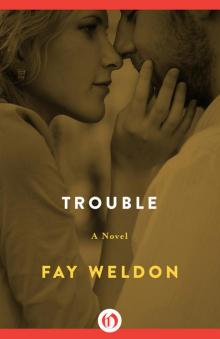 Trouble
Trouble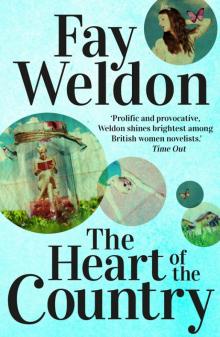 The Heart of the Country
The Heart of the Country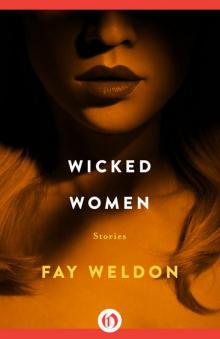 Wicked Women
Wicked Women Mischief
Mischief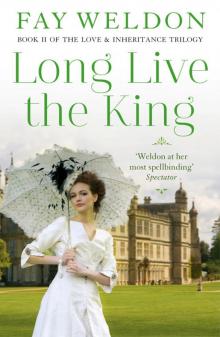 Long Live the King
Long Live the King Remember Me
Remember Me Worst Fears
Worst Fears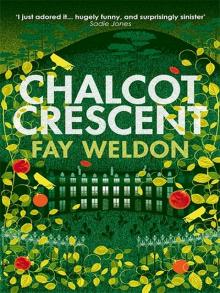 Chalcot Crescent
Chalcot Crescent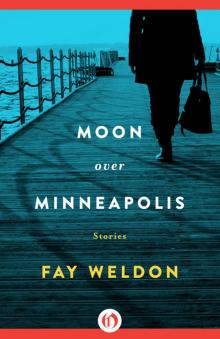 Moon Over Minneapolis
Moon Over Minneapolis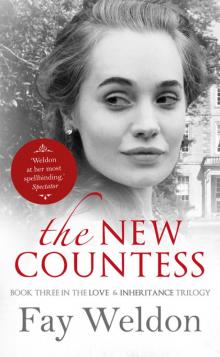 The New Countess
The New Countess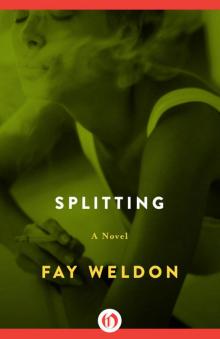 Splitting
Splitting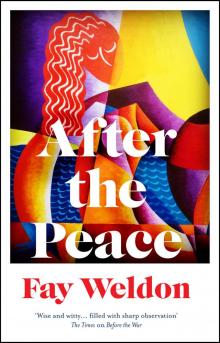 After the Peace
After the Peace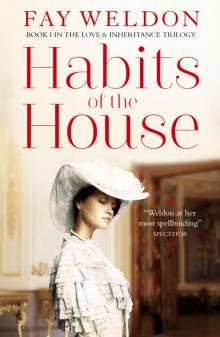 Habits of the House
Habits of the House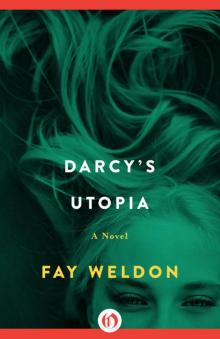 Darcy's Utopia
Darcy's Utopia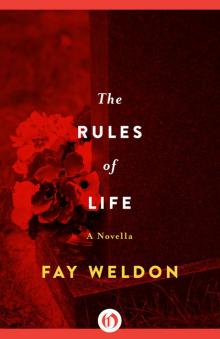 The Rules of Life
The Rules of Life Kehua!
Kehua! Before the War
Before the War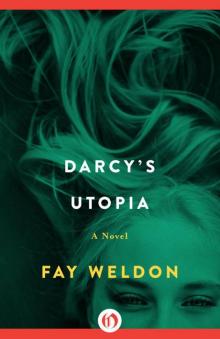 Darcy's Utopia: A Novel
Darcy's Utopia: A Novel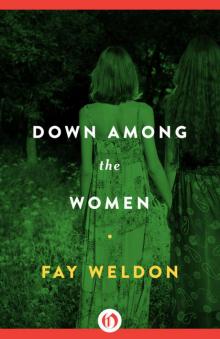 Down Among the Women
Down Among the Women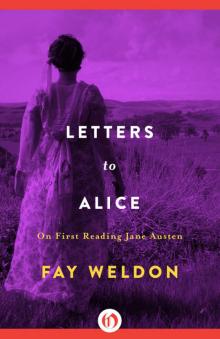 Letters to Alice
Letters to Alice 3 Great Historical Novels
3 Great Historical Novels Female Friends
Female Friends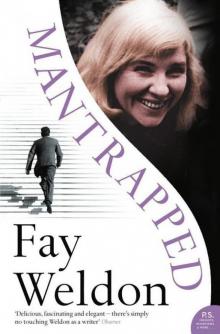 Mantrapped
Mantrapped The Bulgari Connection
The Bulgari Connection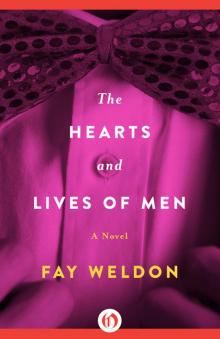 The Hearts and Lives of Men
The Hearts and Lives of Men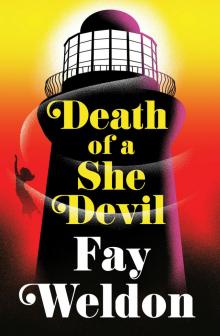 Death of a She Devil
Death of a She Devil